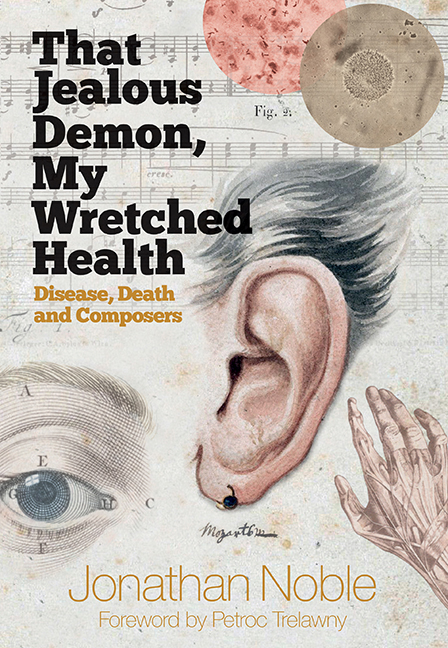Book contents
- Frontmatter
- Dedication
- Contents
- List of Illustrations
- Foreword
- Acknowledgements
- Medical Glossary
- Introduction
- 1 The Frailty of Youth
- 2 A Triumphant Old Age
- 3 Iatrogenic Afflictions
- 4 Syphilis
- 5 Alcoholism
- 6 Troubled Minds: Mental Illness and Suicide
- 7 Nerves Beyond the Edge: Other Afflictions of the Nervous System
- 8 Broken Hearts
- 9 Breathless: Respiratory Diseases
- 10 Cancer
- 11 The Ultimate Blow: Deafness
- Epilogue and Coda
- Appendix: Accidental and/or Violent Deaths
- References
- Bibliography
- Index
3 - Iatrogenic Afflictions
Published online by Cambridge University Press: 05 September 2018
- Frontmatter
- Dedication
- Contents
- List of Illustrations
- Foreword
- Acknowledgements
- Medical Glossary
- Introduction
- 1 The Frailty of Youth
- 2 A Triumphant Old Age
- 3 Iatrogenic Afflictions
- 4 Syphilis
- 5 Alcoholism
- 6 Troubled Minds: Mental Illness and Suicide
- 7 Nerves Beyond the Edge: Other Afflictions of the Nervous System
- 8 Broken Hearts
- 9 Breathless: Respiratory Diseases
- 10 Cancer
- 11 The Ultimate Blow: Deafness
- Epilogue and Coda
- Appendix: Accidental and/or Violent Deaths
- References
- Bibliography
- Index
Summary
First do not harm the patient
Hippocrates, c.400BCThe term ‘iatrogenic’, used of illness and/or death, simply means that they were hastened or caused by medical treatment. Sadly, the biographies of many composers are replete with the iatrogenic.
Potion or Poison? Good Music and Bad Medicine
The stark fact is that, until the era of aseptic surgery with anaesthesia, doctors did not really have much at their disposal with which to treat patients. These two advances came in the mid-nineteenth century, followed in the twentieth by intravenous fluids and antibiotics, as well as insulin, steroids and drugs to treat failure or irregularity of the heart rate and raised blood pressure. Then came chemotherapy and radiotherapy to treat cancer. Before the 1840s there were generally half a dozen or so treatments which became somewhat rigid blandishments for most and diverse conditions. Because those therapies applied initially usually failed, others would relentlessly follow. The sick composer was in many cases saved from worse medical remedies only by the felicitous intervention of nature, or by his professing scepticism regarding further medical torture with alternative practitioners. Of these ‘treatments’, the application of leeches and especially bleeding are probably the most notorious although, in fairness, there are today very occasional uses for both leeches and blood-letting. They are specific and beyond the scope of this book. Blood-letting achieved little apart from making patients anaemic, placing a great strain on the heart, which was sometimes the root of the problem originally. This was despite Harvey having explained the circulation in the seventeenth century.
Poultices, often dirty, were applied to open wounds and sores, introducing further infection. Bed rest and mountain air were benign and, for the tuberculous patient (TB sufferer), removal from smog-bound, overcrowded and insanitary conurbations could be genuinely beneficial. One encounters with many case histories practitioners wedded to one particular treatment. Little wonder that Beethoven famously referred to ‘bumbling doctors and medical asses’, for many of them did literally continue regardless. In so doing, perversely, they generally encountered less opposition than did Semmelweis or Lister introducing asepsis, and Simpson pioneering anaesthesia.
- Type
- Chapter
- Information
- That Jealous Demon, My Wretched HealthDisease, Death and Composers, pp. 67 - 96Publisher: Boydell & BrewerPrint publication year: 2018



